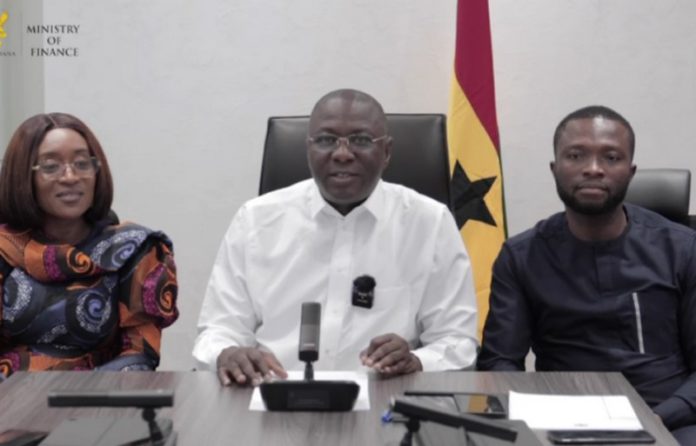The Finance Minister has expressed his appreciation to Ghanaians as the country navigates the conditionalities in securing the results of the International Monetary Fund (IMF) bailout.
According to Dr. Mohammed Amin Adam, this process would not have been possible without support from various stakeholders, including the general public.
“Let me also take advantage of this opportunity to thank the people of Ghana, for your patience and for your forbearance,” he said.
This comes after the IMF Executive Board wrapped up their second review of Ghana’s US$3 billion, 36-month Extended Credit Facility (ECF) Arrangement.
Approved back in May 2023, this review was a critical checkpoint for the country.
The completion of this review meant an immediate disbursement of roughly $360 million, bringing Ghana’s total disbursements under the arrangement to about $1.6 billion.
In a video, the Minister thanked “His Excellency the President for his strong leadership and direction, which helped in the execution of the various policies and measures under the Foreign program. We also wish to commend the IMF, the World Bank, and all other development partners for their support to Ghana.”
On the back of this fresh development, the Minister was “very confident that we can travel this journey together and bring back an economy that is strong enough to deliver the benefits and the development to you all over the country.”
In a meeting, Deputy Managing Director Kenji Okamura announced, “Ghana’s performance under its ECF-supported reform program has been generally strong.
The authorities’ strategy aimed at restoring macroeconomic stability and reducing debt vulnerabilities is paying off, with clear signs of stabilisation emerging.”
Ghana’s economic reform program had indeed been delivering on its objectives. After facing severe economic and financial pressures in 2022, the IMF-supported program provided a credible anchor for the government.
It helped in adjusting macroeconomic policies and implementing reforms to restore macroeconomic stability and debt sustainability. The foundations for higher and more inclusive growth were being laid.
“These efforts are paying off,” Okamura noted. “Growth is proving more resilient than initially expected, inflation is declining at a faster pace, and both fiscal and external positions are improving.”
Despite some delays, Ghana has made significant progress on key structural reform milestones. The Ghanaian authorities were also moving forward with their comprehensive debt restructuring.
On June 11, 2024, they reached an agreement with Ghana’s Official Creditor Committee (OCC) under the G20’s Common Framework on a Memorandum of Understanding (MoU), formalising an agreement in principle on debt treatment.
Kenji Okamura highlighted, “This agreement on a debt treatment, consistent with program parameters, provided the necessary financing assurances for the second review under the ECF Arrangement to be completed.”
Moreover, Ghana’s primary fiscal balance had improved by over 4 per cent of GDP last year.


